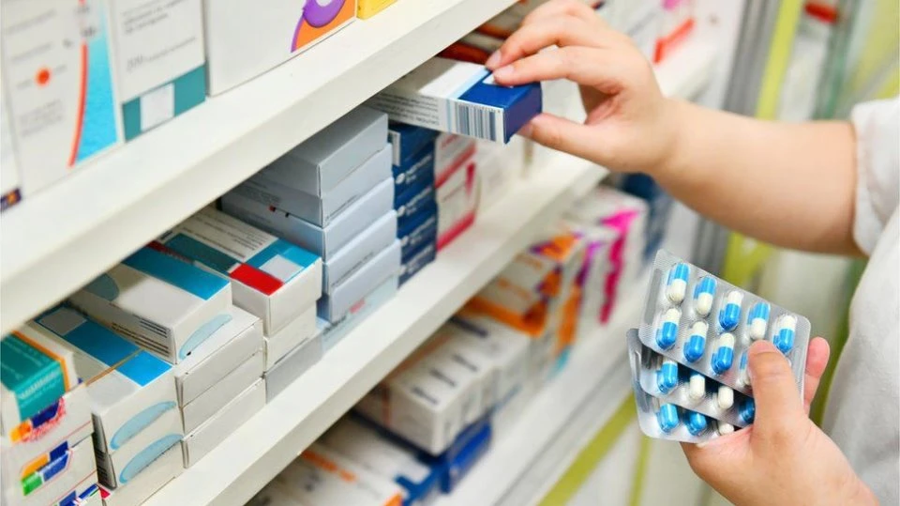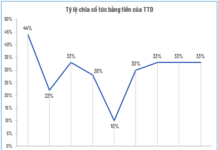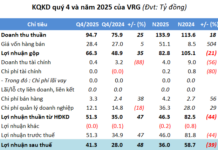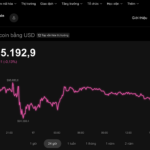On November 21st, with an overwhelming majority of 426 out of 430 delegates voting in favor, the National Assembly passed the Law amending and supplementing a number of articles of the Pharmaceutical Law, with 7 important new points. The law will take effect from July 1, 2025, however, some provisions will come into force earlier, on January 1, 2025.
PROVISIONS ON THE BUSINESS OF DRUGS AND MEDICINAL INGREDIENTS IN THE FORM OF ELECTRONIC COMMERCE
The Law amending and supplementing a number of articles of the Pharmaceutical Law stipulates the business of drugs and medicinal ingredients, including the business of drugs and medicinal ingredients in the form of e-commerce on e-commerce trading floors, e-commerce applications, and websites with online ordering functions.
In addition, the newly passed law also clearly states that when doing business in the form of e-commerce, pharmaceutical business establishments must comply with the provisions of the law on electronic transactions, e-commerce law, advertising law, and the law on consumer protection, as well as other relevant legal regulations.

These business establishments must notify the competent authority of their pharmaceutical business in the form of e-commerce in accordance with the regulations of the Minister of Health.
According to the Law amending and supplementing a number of articles of the Pharmaceutical Law, retail drug stores must organize online consulting and guidance on drug use for drug buyers and organize drug delivery to buyers in accordance with the regulations of the Minister of Health.
The law clearly states, “Only over-the-counter drugs that are not controlled substances and are not on the list of restricted retail drugs may be sold.”
Prescription drugs can be sold in cases of medical isolation when there is a group A infectious disease that has been declared an epidemic in accordance with the law on prevention and control of infectious diseases.
Pharmaceutical business establishments must also comply with the government’s regulations on the wholesale and retail sale of drugs and medicinal ingredients in the form of e-commerce.
Previously, in the report on reception and explanation, Ms. Nguyen Thuy Anh, Chairman of the Social Affairs Committee, said that there were opinions proposing to specify the responsibilities of e-commerce trading floors in controlling the quality and origin of drugs sold on the floor.
The National Assembly Standing Committee believes that the responsibilities of e-commerce trading floors have been stipulated in the Law on E-Commerce and Electronic Transactions.
In addition, this is just a means of conducting transactions, and pharmaceutical business activities will still be carried out by pharmaceutical business establishments. Therefore, the facility that sells drugs on the floor must take responsibility for the quality of the drugs, similar to the traditional form of buying and selling.
The Law on E-Commerce and Electronic Transactions also stipulates the responsibilities of the parties involved in e-commerce trading floors. The regulations in the draft law are also in line with the management trend of e-commerce in the pharmaceutical business in a number of countries around the world.
The newly passed Pharmaceutical Law also supplements many regulations on drug price management. Accordingly, the Ministry of Health has the right to propose to enterprises on the price level of drugs circulating in the market when it is found to be higher than the highest level of similar drugs that have been announced, or the selling price in the country of origin.
In addition, the Ministry of Health can also intervene in cases where the wholesale price of a drug is expected to be higher than the maximum price difference set by the Government.
The National Assembly Standing Committee said that, taking into account the opinions of the delegates, the Committee had reviewed and agreed with the Government’s proposal to stipulate the measure of announcing the expected wholesale price for prescription drugs. This is a special measure in drug price management as prescription drugs account for a large proportion of the market and are widely used in medical facilities, and patients have to buy them as prescribed by doctors.
At the same time, the regulation on the Ministry of Health’s proposal on the expected wholesale drug price to drug business facilities aims to limit the increase in drug prices through each intermediate level and prevent price gouging when the drugs reach consumers. The current regulation on the maximum retail margin for drugs sold at retail outlets located in the premises of medical examination and treatment facilities is maintained.
Regarding the delegates’ proposal on the measure of price declaration, as this content is implemented in accordance with the Price Law, the National Assembly Standing Committee requested the Government to inspect and direct the implementation of the guiding documents, detailed regulations of the 2023 Price Law to supplement the criteria for selecting the list of facilities that must declare prices, ensuring uniform and transparent implementation in localities. At the same time, closely monitor the implementation process, promptly detect difficulties and problems, and handle them promptly; and periodically update the list of essential drugs to ensure full guidance in accordance with the provisions of the Price Law.
7 NEW POINTS OF THE PHARMACEUTICAL LAW
The National Assembly Standing Committee stated that compared to the current Law, the draft Law has 7 main groups of new points.
First, the State’s policies on pharmaceuticals continue to be improved, institutionalizing the Party’s views to aim for the development of Vietnam’s pharmaceutical industry into a key industry.
Accordingly, the draft Law supplements some breakthrough regulations compared to the 2016 Pharmaceutical Law to attract investment and further promote research and development of drugs and medicinal ingredients, such as preferential policies on administrative procedures for registration and import permits;
Along with that are policies on applying preferential and supportive mechanisms from science and technology funds for research, development, clinical trials, technology transfer, and production of drugs and medicinal ingredients; policies on price stabilization and reduction for some groups of drugs with technology transfer; policies on digital transformation in pharmaceutical activities;
Determining the scale of projects in the pharmaceutical field that are eligible for special investment incentives and support, and delegating the Government to detail these policies to ensure their feasibility and effectiveness, bringing the State’s policies on pharmaceuticals and pharmaceutical industry development to life.

Second, creating a legal framework for new business models and methods. This includes the regulation of the organization of a chain of pharmacies as a separate type of pharmaceutical business establishment, with conditions for operation, rights, and responsibilities, especially the right to transfer drugs and the right to rotate pharmaceutical professionals among pharmacies within the chain;
The law also stipulates the business of drugs and medicinal ingredients in the form of e-commerce, specifically allowing the sale of certain types of drugs and medicinal ingredients through e-commerce and outlining the rights and responsibilities of pharmaceutical business establishments engaging in this form of business.
Third, specifying the rights and responsibilities of pharmaceutical business establishments with foreign investment in the Law itself to ensure transparency and clarity in state management.
Fourth, expanding the rights of drug manufacturing facilities, import-export facilities, drug and medicinal ingredient wholesale facilities to sell directly to some medical facilities, drug addiction treatment facilities, testing facilities, research and training facilities, and some other facilities; allowing medical examination and treatment facilities to import drugs to serve the special treatment needs of patients at the facility.
Fifth, promoting administrative procedure reform in drug and medicinal ingredient registration towards streamlining and simplifying procedures, classifying drugs and medicinal ingredients based on different levels of characteristics and circulation to adjust dossiers, procedures, and timelines for registration, extension, change, and supplement of registration numbers accordingly, while ensuring effective state management and control over drug quality, safety, and efficacy; supplementing regulations to limit the issuance of duplicate registration numbers.
At the same time, there are specific regulations on dossiers, procedures for drug and medicinal ingredient registration, drug testing, and drug business in general to meet the requirements of national defense, security, natural disasters, calamities, and epidemics.
Sixth, abolishing the procedure for confirming drug information. Strengthening decentralization and empowerment of the Department of Health in drug recall to promptly handle poor-quality drugs, ensuring drug safety and effectiveness.
Seventh, stipulating price management measures in line with the Price Law and special measures in drug price management, including the announcement and re-announcement of the expected wholesale price for prescription drugs, ensuring that drug prices do not exceed the announced expected wholesale price when passing through intermediate levels.
The Secret to Converting Online Sales: Unveiling the Monthly Order Numbers of Vietnamese Shoppers
The average Vietnamese consumer shops online four times a month, and the country’s e-commerce and digital economy sectors are poised for even more robust growth.
The E-commerce Floor and Digital Platforms: A Case for Corporate Income Tax
The government has proposed a new regulation requiring foreign businesses providing goods and services through e-commerce and digital platforms to pay taxes on their taxable income derived from Vietnam. This proposal aims to ensure that foreign enterprises doing business in Vietnam’s digital landscape contribute their fair share to the country’s tax revenue.
The Quiet Invasion: How 5 Chinese Domestic Beauty Brands Conquered the Vietnamese Market and Captured Over $28 Million Annually by Targeting a Generation With “Loose Wallets and Fickle Hearts.”
Data from four e-commerce platforms reveals that the top five domestic Chinese cosmetics brands, including Focallure, Colorkey, Judydoll, Perfect Diary, and Zeesea, garnered an impressive 660 billion VND in sales in Vietnam within just one year.




















